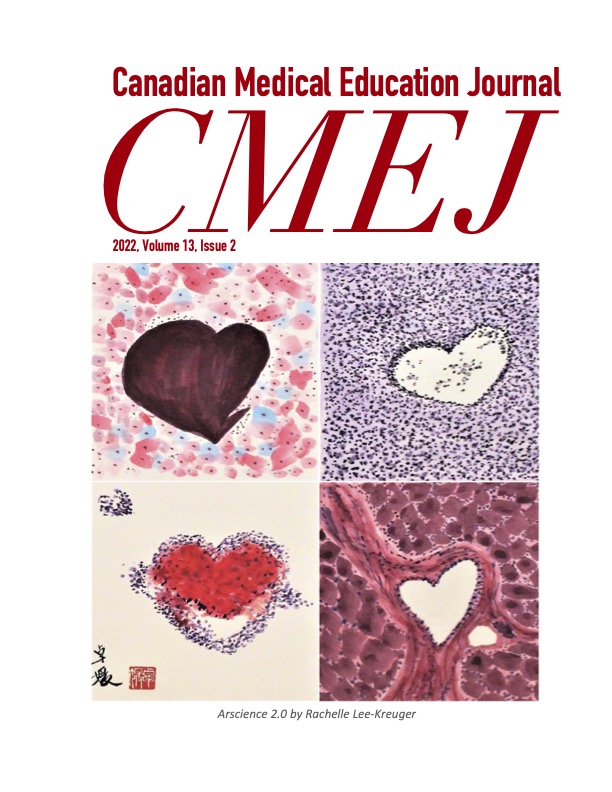Seven ways to get a grip on preparing for and executing an inclusive virtual multiple mini interview
DOI:
https://doi.org/10.36834/cmej.73671Abstract
COVID-19 restrictions have prompted many medical schools to shift to virtual interview methods for medical school applicant selection. While extensive reflection has been documented around both the process and benefits of transitioning to a virtual Multiple Mini Interview (V-MMI) format, less attention has been given to examining the unintended consequences of this adaptation on increasing representation from underrepresented groups. In this Black Ice article, we consider the equity implications of taking a virtual approach to conducting MMIs and present some practical tips to ensure medical schools are giving attention to and addressing equity issues that may affect applicant and assessor engagement and success. The following seven recommendations include actionable steps medical schools can take immediately to optimize the interview process. This guide can be adapted to residency matching services and other health professions education programs that utilize the MMI.
Downloads
Published
Issue
Section
License
Copyright (c) 2019 Carolyn Melro, Zoe Abraham, Sarah Burm

This work is licensed under a Creative Commons Attribution-NonCommercial-NoDerivatives 4.0 International License.
Submission of an original manuscript to the Canadian Medical Education Journal will be taken to mean that it represents original work not previously published, that it is not being considered elsewhere for publication. If accepted for publication, it will be published online and it will not be published elsewhere in the same form, for commercial purposes, in any language, without the consent of the publisher.
Authors who publish in the Canadian Medical Education Journal agree to release their articles under the Creative Commons Attribution-Noncommercial-No Derivative Works 4.0 Canada Licence. This licence allows anyone to copy and distribute the article for non-commercial purposes provided that appropriate attribution is given. For details of the rights an author grants users of their work, please see the licence summary and the full licence.











